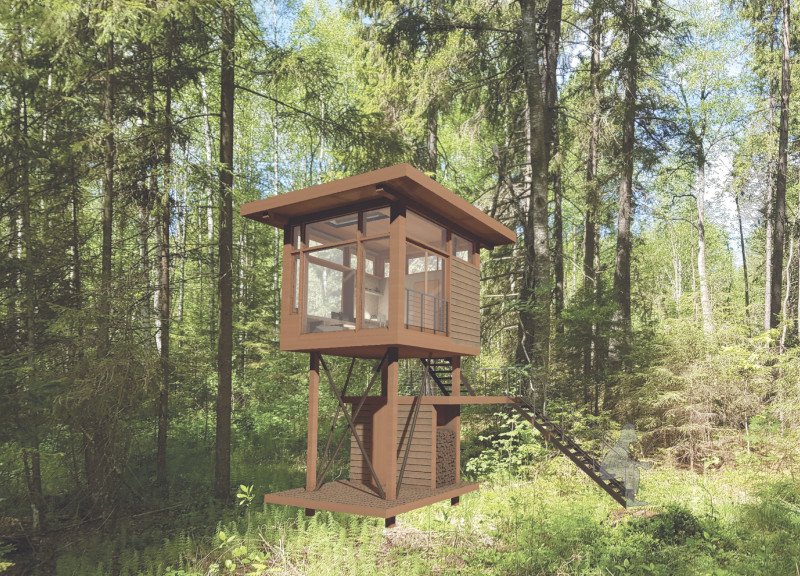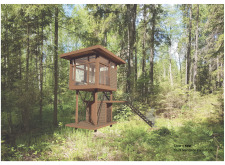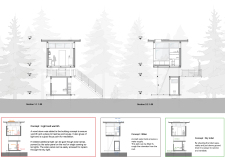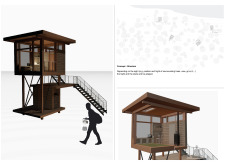5 key facts about this project
The Crow's Nest Silent Meditation Forest Cabins are set within a forest, offering a peaceful space for meditation and contemplation. Designed with a focus on minimizing environmental impact, the structure is raised above the ground on four pillars. This allows for easy passage under the cabin, preserving the natural terrain. The design takes cues from traditional hunter lookouts, encouraging visitors to connect quietly with the surrounding nature.
Design and Layout
The layout of the cabin is compact yet functional, dividing the space into clear zones for different activities. The main area consists of a kitchen and a meditation section. The kitchen includes essential features such as storage drawers, a water tank, and a basin, allowing for basic food preparation. A wood stove is also included, providing warmth and a place to prepare tea, enhancing the overall experience for users.
Meditation Experience
The meditation area is designed to encourage a connection with nature. Tatami mats are used on the floor, bringing a sense of comfort and calm. Large windows and a skylight allow natural light to fill the space, offering unobstructed views of the trees and sky. This openness invites the sounds of the forest in, enriching the time spent in meditation. Visitors can even place bedding on the tatami mats, giving them a chance to gaze at the stars at night.
Access and Utility
Access to the cabin is through stairways that lead to a platform, providing different viewpoints of the forest. This flexibility allows the design to adapt to the landscape, adjusting the height and arrangement of the stairs according to the surrounding trees.
On the ground floor, a dry toilet and firewood storage are located for convenience and hygiene. The water system is designed to collect rainwater from the roof, stored in a tank. This approach supports sustainability, using natural resources effectively without unnecessary waste.
Overall, the design focuses on simplicity and practicality, creating a space that respects the forest while offering comfort. A large window frames views of the forest skyline, serving as a visual link between the inside and outside, allowing visitors to feel connected to the environment.






















































